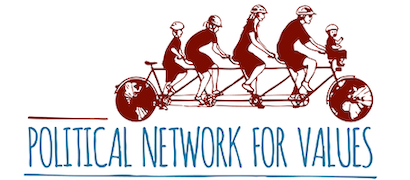Analysis | By Carlos Polo | A new report by the Population Research Institute (PRI) details the operations of the Latin American Consortium against Unsafe Abortion (Consorcio Latinoamericano contra el Aborto Inseguro – CLACAI), an international network created to introduce and normalize clandestine abortion with misoprostol in Ibero-America.
With a presence in 19 countries and 165 member organizations, CLACAI presents itself as a defender of “sexual and reproductive rights,” but its real goal is to legalize abortion without restrictions and weaken laws that protect life.
CLACAI’s Reason for Being: Abortion with Misoprostol
Misoprostol is a drug approved in most countries to treat gastric ulcers or to induce labor in controlled medical contexts. CLACAI and its allies promote it for another purpose: to provoke abortions at home, without medical supervision. They call it “safe abortion” or “self-managed abortion,” but in reality, it is a form of clandestine self-medication that can cause hemorrhage, infection, irreversible damage, and even death.
The method is simple and dangerous: a woman obtains the pills on the black market, usually through websites or social media, and receives instructions online or by phone to take the drug alone. If complications arise, she is advised to go to a hospital claiming it was a spontaneous miscarriage—thus avoiding legal consequences for those who sold or instructed her in the drug’s use. In this way, the promoters free themselves of criminal responsibility while transferring all the risk to the woman. It is not autonomy; it is abandonment.
This illegal practice places vulnerable women in the hands of criminals who sell them the pills and then abandon them, leaving them alone with a self-medication that can cause serious harm or death.
Within its network, CLACAI includes international abortion NGOs such as Safe2Choose and Women Help Women, which promote the use of illegally acquired misoprostol to induce abortions. Other CLACAI members replicate these “self-managed abortion hotlines,” to which are added “misoprostol delivery services” on the black market via social networks, exposing women to a triple risk: health, security, and financial.
From Clandestinity to Coordinated Activism
These practices are part of a carefully designed global strategy conceived in international offices. Their origin goes back to 2003 with the creation of the NGO Gynuity Health Projects, established specifically to develop and expand worldwide the use of misoprostol as a tool for abortion. Its leadership was entrusted to Beverly Winikoff, who brought 25 years of experience as Director of Reproductive Health at the Population Council, one of the key actors in the international abortion industry.
Founded in 2006, CLACAI was created to coordinate three strategic fronts in Ibero-America:
- Legal-political: designs lawsuits, drafts protocols, and pressures national and international courts to decriminalize or legalize abortion.
- Media-cultural: builds narratives presenting abortion as a human right and normalizes its practice outside the health system, while discrediting the pro-life movement.
- Technological-practical: trains health personnel, distributes manuals for chemical abortions, and maintains digital platforms guiding women to carry out clandestine abortions.
At the core of this network are international NGOs such as IPPF (the world’s largest abortion clinic franchise), Planned Parenthood Global, Population Council, Amnesty International, and Women Deliver, as well as groups like Catholics for the Right to Decide, created to confuse Catholics about Church doctrine. Regional coordination of CLACAI is based in Peru and led by the NGO PROMSEX.
The Paradigm Shift: From the Hospital to the Home
Regardless of legality, abortion has always been a medical procedure performed in a healthcare facility. Now, CLACAI’s strategy is to move that act into the home and rebrand it as an “autonomous action of the woman.” This shift frees doctors and health institutions from criminal liability but obliges health personnel to treat the complications—where they cannot invoke conscientious objection.
The consequences are already evident: women suffering serious harm and others who have died after using misoprostol. These cases are not always reported, but the pattern is clear: the network promotes a risky method, sells it as safe, and conceals its adverse effects.
The Connection with USAID and the Threat to Sovereignty
PRI’s report documents that the main organizations leading CLACAI have received direct or indirect funding from the United States Agency for International Development (USAID). Thus, public resources from international cooperation end up financing an illegal and dangerous practice, as well as an ideological agenda contrary to the laws of most Ibero-American countries.
This operation, coordinated at the regional level, erodes the capacity of states to define their own policies on health and protection of life. Under the guise of human rights, external pressure is applied that compromises the sovereign legal framework of nations.
PRI’s report is based on internal documents, public statements, and materials produced by the network itself. Their own words and actions reveal their objective. Citizens and legislators have the right to know who makes up this network, how they operate, and where their funding comes from.
Only with transparent information can true democratic oversight be exercised and both the lives of the unborn and the health of women be protected. In the face of this threat, silence is not an option. It is complicity.
Download the full CLACAI Report.
•
Carlos Polo is director of the Population Research Institute’s Latin American office, a member of the Political Network for Values’ Committee of Experts, and co-author of the book “Sustainable Development or Surrender of Sovereignty?: The Scope of the 2030 Agenda and Implications of the Cooperation Framework between the UN and Peru.”
The opinion pieces and analyses we publish offer valuable information or perspectives for our readers. They do not necessarily represent the position of the Political Network for Values and are the sole responsibility of their authors.



